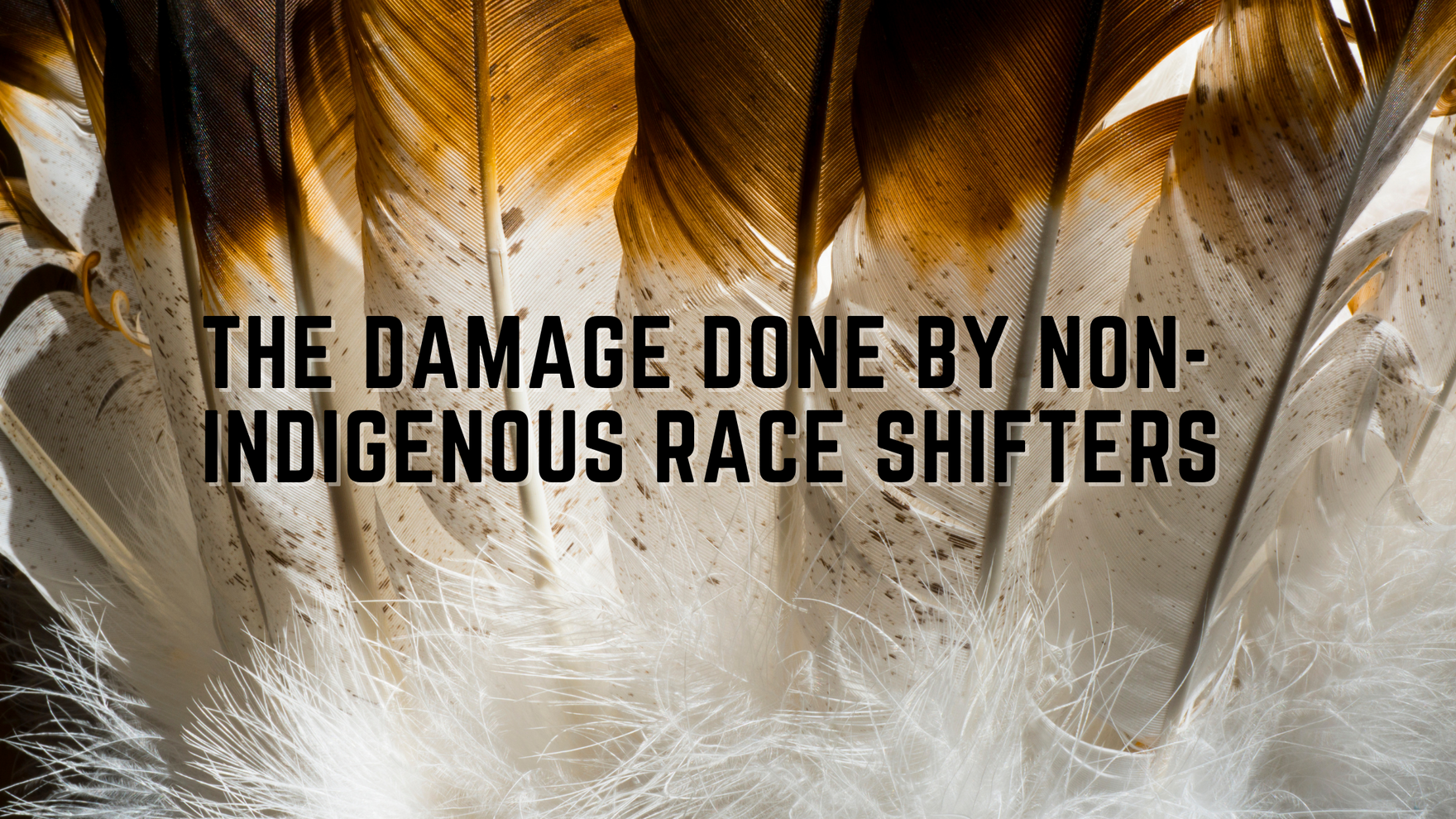In recent years, there has been a growing phenomenon of non-Indigenous people claiming to be Indigenous. The term ‘race shifter’ is used to describe this phenomenon, as these individuals are essentially shifting their racial identity in order to benefit from the advantages that come with being Indigenous. This trend may be well-meaning but it causes immense damage and erases the struggles faced by real Indigenous people. Let’s take a closer look at how ‘race shifting’ is damaging the progress made by Indigenous communities.
The Impact of Cultural Appropriation
One of the most harmful effects of race shifting is cultural appropriation. When a non-Indigenous person claims to be Indigenous, they are appropriating parts of Indigenous culture for their own personal gain. Not only does this take away from real Indigenous people who have spent years learning about their heritage and culture, but it also reduces an entire culture down to something that can simply be adopted or discarded based on personal preference or convenience. This has serious implications for Indigenous rights and self-determination, as it perpetuates the idea that Indigeneity is something that can be taken on and off like a costume—it denies the fact that being Indigenous is an integral part of who someone is.
Erasing Real Struggles
Another major issue caused by race shifters is that they erase real struggles faced by real Indigenous people. By claiming to be Indigenous without facing any of the same discrimination or marginalization experienced by those who are actually part of an Indigenous community, race shifters contribute to the false narrative that all forms of racism towards Native Americans have been solved and no longer exist in modern society. This makes it difficult for real Native Americans to make their voices heard, as any legitimate claims they make about racism or discrimination are quickly dismissed as unfounded due to race shifting activities which undermine them.
Impact on Representation
Finally, race shifters also have a negative effect on representation in media and pop culture. When non-Indigenous actors portray indigenous characters in film or TV shows without proper consultation with actual members of an indigenous community, they are taking away valuable opportunities from those who should actually be representing those characters. This not only perpetuates stereotypes about indigenous people (such as the mythological Noble Savage) but also undermines efforts made in recent years to increase representation in mainstream media for marginalized groups like indigenous communities.
Race shifting can have devastating consequences for real members of an indigenous community—consequences which should not be overlooked or minimized just because these individuals mean well when they shift their racial identities. It is important for us all to recognize why this phenomenon can cause so much damage, so we can take steps towards preventing it from happening in the future and ensuring our actions do not oppress or ignore those who truly belong to an indigenous community.
The Impact of Cultural Appropriation
One of the most harmful effects of race shifting is cultural appropriation. When a non-Indigenous person claims to be Indigenous, they are appropriating parts of Indigenous culture for their own personal gain. Not only does this take away from real Indigenous people who have spent years learning about their heritage and culture, but it also reduces an entire culture down to something that can simply be adopted or discarded based on personal preference or convenience. This has serious implications for Indigenous rights and self-determination, as it perpetuates the idea that Indigeneity is something that can be taken on and off like a costume—it denies the fact that being Indigenous is an integral part of who someone is.
Erasing Real Struggles
Another major issue caused by race shifters is that they erase real struggles faced by real Indigenous people. By claiming to be Indigenous without facing any of the same discrimination or marginalization experienced by those who are actually part of an Indigenous community, race shifters contribute to the false narrative that all forms of racism towards Native Americans have been solved and no longer exist in modern society. This makes it difficult for real Native Americans to make their voices heard, as any legitimate claims they make about racism or discrimination are quickly dismissed as unfounded due to race shifting activities which undermine them.
Impact on Representation
Finally, race shifters also have a negative effect on representation in media and pop culture. When non-Indigenous actors portray indigenous characters in film or TV shows without proper consultation with actual members of an indigenous community, they are taking away valuable opportunities from those who should actually be representing those characters. This not only perpetuates stereotypes about indigenous people (such as the mythological Noble Savage) but also undermines efforts made in recent years to increase representation in mainstream media for marginalized groups like indigenous communities.
Race shifting can have devastating consequences for real members of an indigenous community—consequences which should not be overlooked or minimized just because these individuals mean well when they shift their racial identities. It is important for us all to recognize why this phenomenon can cause so much damage, so we can take steps towards preventing it from happening in the future and ensuring our actions do not oppress or ignore those who truly belong to an indigenous community.

